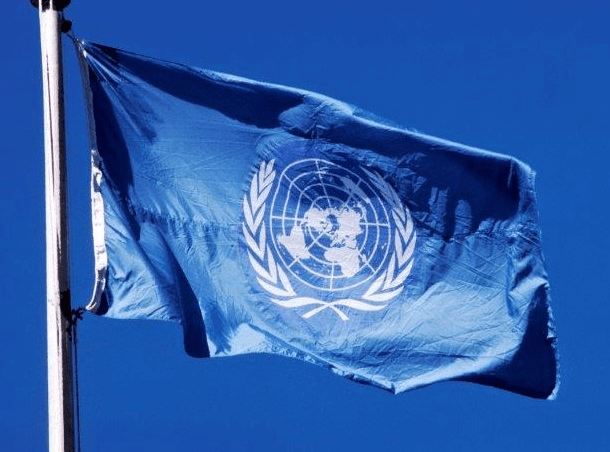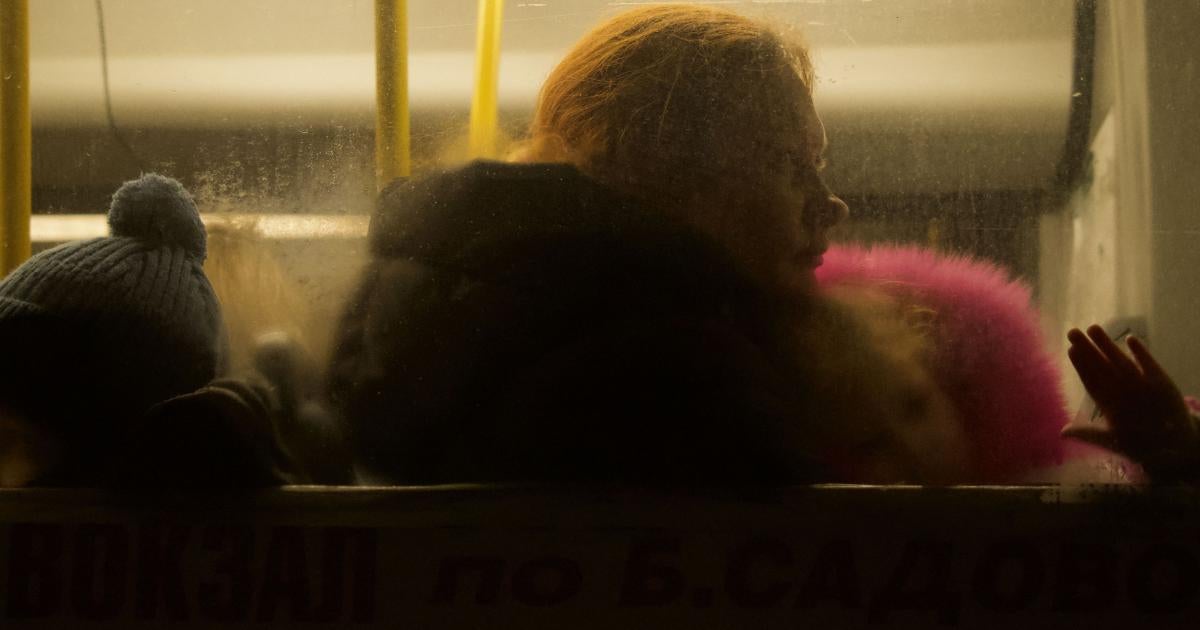Per quale motivo non dovrebbe essere giusto manifestare per l'Ucraina? Che cazzo di domanda è?!
Non è la domanda che ho fatto, io ho chiesto: secondo te si dovrebbe scendere in piazza anche per l'Ucraina
come si è fatto per i palestinesi? Quel "come" significa mettendo in campo quei due punti in comune tra causa ucraina e palestinese, che sono:
- Putin deve cessare l'invasione e il massacro (ed eventualmente ritirarsi);
- Gli ucraini hanno il diritto di avere una terra (nazione, Paese, Stato) in cui vivere.
Chiara la domanda adesso?
Ti ho già detto e ripetuto che non me ne frega una fava di indagare in che percentuale una determinata narrazione incide sulla scelta della gente a scendere in piazza per manifestare.
Beh, arrivati a questo punto sono abbastanza sicuro che non sia né casuale né involontario, quindi ti dico: è inutile che continui a fingere che la domanda sul peso che la narrazione della "provocazione" della NATO ha non riguardi solo ed esclusivamente la tua scelta (bensì riguardi quella di altra gente) circa se e come dissentire su ciò che sta facendo la Russia in Ucraina (e non parlo di scendere in piazza ma più in generale di posizione di pensiero che puoi esprimere ovunque, forum compreso). Ma se non vuoi rispondere basta dirmi che non vuoi farlo invece di cercare di stravolgere ogni volta questo punto della domanda spostandone il focus da te alla "gente".

Il rischio che l'Ucraina possa scomparire è uguale, a mio parere, al rischio che la Russia possa attaccare militarmente la Francia o la Spagna o l'Italia.
Cioè quanto?
Secondo te sia il rischio che la Russia possa attaccare militarmente la Francia o la Spagna o l'Italia sia
il rischio che l'Ucraina possa scomparire sono inesistenti, 0%, ho capito bene?
Il terreno culturale dove si fa scomparire l'"altro" viene preparato da entrambe le parti e questo accade anche in altri contesti compreso quello israelo-palestinese (a Kiev via San Pietroburgo è diventata via Londra

e non è l'unica, in tutta la toponomastica stanno eliminando ogni riferimento alla Russia).
E
“Via della Collettivizzazione” è stata ribattezzata in onore di James Mace, storico americano ed esperto di Ucraina che ha portato l'Holodomor, la carestia provocata in Ucraina dall'URSS tra il 1932 e il 1933, all’attenzione mondiale. Molti tra i nuovi nomi di strade riportano alla memoria la storia, la cultura e le scienze ucraine.
Davvero, ma che è questa parte di post, uno scherzo di cattivissimo gusto? C'è la Russia (peraltro uno degli eserciti più grandi al mondo, Paese più grande per estensione geografica, potenza nucleare, ideologia panslavista e politica revanscista in chiave imperiale o al limite neocoloniale) che da più di tre anni sta invadendo l'Ucraina (ex territorio sovietico sotto il dominio del governo centrale di Mosca) su larga scala, ufficialmente annettendone illegalmente intere regioni, mentre ne nega l'esistenza come Stato e ne cancella ogni riferimento nei propri libri scolastici, e tu mi vai a prendere l'elemento della reazione ucraina all'invasione russa consistente nel rimuovere la toponomastica associata all'Unione Sovietica e alla Russia in questo maldestro tentativo di stabilire un'equivalenza fra le due situazioni trattate, per giunta non facendo presente innanzitutto l'ovvio, cioè che, al contrario di ciò che avviene a parti invertite nel Paese invasore ed occupante, per l'Ucraina l'esistenza della Russia come Stato non è in discussione? Ma va' va'.

La domanda era seria e pensavo fosse degna di una risposta altrettanto seria.
The report, based on more than 2,300 interviews with victims and witnesses, details the measures taken by the Russian Federation to impose Russian language, citizenship, laws, court system, and education curricula on the occupied areas, while at the same time suppressing expressions of Ukrainian...

ukraine.un.org
The report, based on more than 2,300 interviews with victims and witnesses, details the measures taken by the Russian Federation to impose Russian language, citizenship, laws, court system, and education curricula on the occupied areas, while at the same time suppressing expressions of Ukrainian culture and identity, and dismantling Ukraine’s governance and administrative systems in these regions.
The 63-page report “Education under Occupation: Forced Russification of the School System in Occupied Ukrainian Territories,” documents violations of international law by the Russian authorities in relation to the right to education in formerly occupied areas of Ukraine’s Kharkivska region, and...

www.hrw.org
Russian occupying forces in Ukraine and federal authorities, including Russia’s education minister and other senior officials, have taken measures to suppress the Ukrainian language and curriculum and impose the Russian curriculum and Russian as the language of instruction in schools. These measures violate the laws of armed conflict, which prohibit an occupying power from making unnecessary changes to laws in the occupied territory, such as Ukraine’s 2017 Law on Education.
Ukrainian children under occupation are indoctrinated with the Kremlin’s anti-Ukrainian propaganda. They also receive military training as part of the school curriculum. The Russian school curriculum, which includes history textbooks that seek to justify Russia’s invasion and portrays Ukraine under its current government as a “neo-Nazi state,” and which strictly limits instruction in the Ukrainian language, also violates Ukrainian children’s right to an education that develops respect for the child’s “own cultural identity, language and values,” as well as the “national values” of the child’s country of origin.
[1] Russia’s imposition of Russian education in the Russian language in occupied Ukrainian territory violates international human rights standards including the prohibition against propaganda for war, the child’s right to education in their mother-tongue , and parents’ right of choice regarding their children’s education. As the UN human rights office reported, the Russian authorities require secondary schools in occupied Ukrainian territory to report the names of students ages 18 and older, whom the Russian authorities deem eligible to be drafted into the Russian armed forces.
Any criticism of the invasion in schools is subject to retaliation by occupying authorities. Russian proxies in occupied Melitopol punished a student who spoke Ukrainian in school by driving him dozens of kilometers with a bag over his head to a remote area and abandoning him to walk back home alone. Occupying authorities threatened parents with fines, loss of custody of their children, and detention if they did not enroll their children in “Russian” schools or if their children studied the Ukrainian curriculum remotely. Some parents reportedly hid their children as a result.
The 71-page report, “‘We Had No Choice’: ‘Filtration’ and the War Crime of Forcibly Transferring Ukrainian Civilians to Russia,” documents the transfers of Ukrainian civilians. The transfers are a serious violation of the laws of war that constitute war crimes and potential crimes against...

www.hrw.org
Since Russia’s full-scale invasion of Ukraine on February 24, 2022, Russian and Russian-affiliated officials have forcibly transferred Ukrainian civilians, including those fleeing hostilities, to areas of Ukraine occupied by Russia or to the Russian Federation, a serious violation of the laws of war amounting to a war crime and a potential crime against humanity. Many of those forcibly transferred were fleeing the besieged port city of Mariupol.
Russian and Russian-affiliated authorities also subjected thousands of these Ukrainian citizens to a process referred to by Russia as “filtration,” a form of compulsory security screening, in which they typically collected civilians’ biometric data, including fingerprints and front and side facial images; conducted body searches, and searched personal belongings and phones; and questioned them about their political views. Ukrainian civilians were effectively interned as they waited to undergo this process, with many reporting that they were housed in overcrowded and squalid conditions, for periods as short as several hours for up to almost a month.
Forced transfers and the filtration process constitute and involve separate and distinct abuses against civilians, although many Ukrainian civilians experienced both.
This report documents the forcible transfer of Ukrainian civilians from Mariupol and the Kharkiv region to Russia and Russian-occupied areas of Ukraine. Unlike combatants who, once captured, are held as prisoners of war (POWs) and may be moved to enemy territory, the forcible transfer of civilians is prohibited under international humanitarian law, or the laws of war, and can be prosecuted as a war crime and a crime against humanity. The report describes various kinds of pressure the Russian military and other Russian and Russian-affiliated officials used to make Ukrainian civilians fleeing hostilities go to Russia or the so-called “Donetsk People’s Republic” (DNR), an area of the Donetsk region controlled by Russian-affiliated armed groups and currently occupied by Russia (DNR is used in this report as a reference to this area, not as recognition of any claims to sovereignty). The report also describes the many challenges Ukrainian civilians faced and the abuses they suffered as they attempted to flee Mariupol for Ukrainian-controlled territory and avoid going to Russia, or as they tried to leave Russia for a third country.
Etc.


 e non è l'unica, in tutta la toponomastica stanno eliminando ogni riferimento alla Russia).
e non è l'unica, in tutta la toponomastica stanno eliminando ogni riferimento alla Russia).

